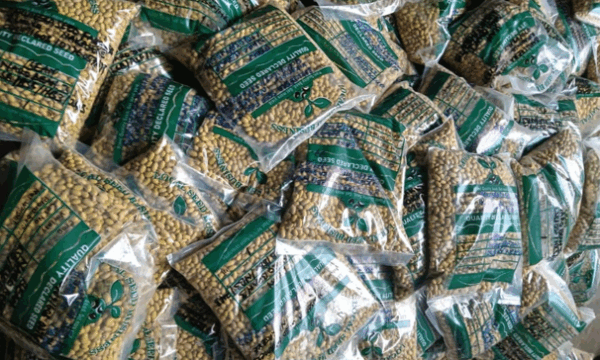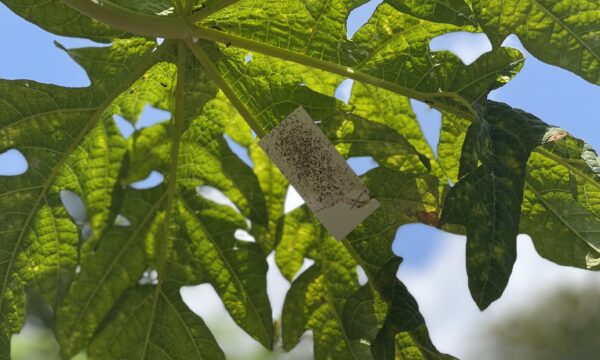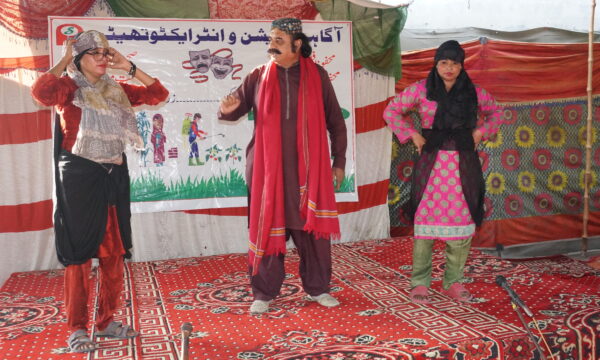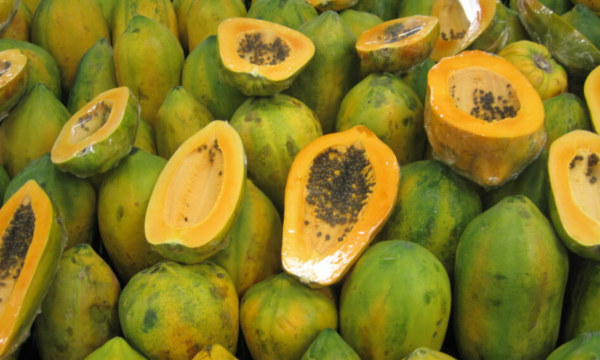 Our first guest blog is from Professor Tim Benton. Tim is Professor of Ecology at the University of Leeds, where his research interests focus around agriculture-ecological interactions. He also currently has a role as “Champion” for the UK’s Global Food Security programme which aims to coordinate food security related research across the major public funders.
Our first guest blog is from Professor Tim Benton. Tim is Professor of Ecology at the University of Leeds, where his research interests focus around agriculture-ecological interactions. He also currently has a role as “Champion” for the UK’s Global Food Security programme which aims to coordinate food security related research across the major public funders.
Against the oft cited calls that global food demand will increase 70% by mid-century, there is also increasing recognition that the environment provides an important range of services (“ecosystem services”) that need protecting (MEA, 2005; NEA, 2011). These include those that may aid food production (such as soil fertility, pollination, natural pest control, water) or may have monetary or non-monetary value for society as a whole (e.g. contributing to climate control by storing carbon, flood control, cultural such as the look of the landscape and the existence of iconic biodiversity). The history of recent decades suggests that the green revolution has often come with unsustainable environmental impacts and resource use in terms of inorganic nitrogen, phosphate fertiliser, fuel use, soil degradation and also biodiversity loss, with the resulting degradation of ecosystem services upon which both agricultural productivity (in the long term) and society relies (Foresight, 2011). Thus, there is the need to reduce the environmental impact of agricultural practices, and increase its sustainability.

Practices such as no-till and precise application of chemicals will aid sustainable intensification of agriculture © E. Phipps/CIMMYT (CC BY-NC-SA 2.0 license)
There are two broad approaches to the “sustainable intensification” of agriculture: (a) promoting greater resource use efficiency, and (b) management of non-production areas within the farmed landscape to support ecosystem services. Increasing efficiency within intensive agriculture is underpinned by a range of modern approaches. These include tillage practices (low or no-till) and ensuring that agro-chemicals are used according to the “4Rs” principle: right intervention, right amount, right time, right place. There are clear and increasing developments in agricultural practice, based around the concept of precision agriculture, but building on modern technologies that can increase resource use efficiency enormously.
Such advances in resource use efficiency have a range of benefits (e.g. the economic benefits of farmers using less chemical and maximising its utility, and with a reduction in chemical use, a reduction in indirect environmental effects). However good resource use efficiency is, it is not enough to deliver the totality of the sustainable intensification agenda. In particular, a range of ecosystem services are derived from organisms living within the agricultural landscape but which cannot exist (solely or in part) within a modern field. The difficulty comes when these services do not directly benefit the farmer financially but are vital to maintain the health of the complete ecosystem.
Tim’s next blog post will look at how farmers can incorporate the development of ecosystem services into their land management plans without losing out financially.
The views given in this blog are those of the author and do not necessarily reflect those of Plantwise or CABI.
Foresight, 2011. The Future of Food and Farming: Challenges and choices for global sustainability. The Government Office for Science, London.
MEA, 2005. Millennium ecosystem assessment. Ecosystems and Human Well-being: Synthesis. Island Press, Washington DC.
NEA, U., 2011. The UK National Ecosystem Assessment. Synthesis of the Key Findings.
3 Comments
Leave a Reply
Related News & Blogs
The role of soil health in sustainable agriculture
Previously, we have discussed the importance of soil health for agriculture, highlighting its threats and outlining protection strategies. In this blog, we dig deeper into the role of soil health in sustainable agriculture and explore its long-term ben…
18 June 2025





[…] Ecosystem services and the need for sustainable intensification (plantwise.org) […]
[…] Benton, the UK Global Food Security programme ‘champion’, wrote a guest blog post about ecosystem services and the need for sustainable intensification of agriculture. This week he follows on from this by looking at how farmers can integrate protection of ecosystem […]
[…] and a session on ‘What Does Open Data Look Like?’ chaired by Prof Tim Benton, who has guest blogged for Plantwise before. Join in the discussion on Twitter using #OpenAgData and #Plantwise, and follow us on Facebook for […]